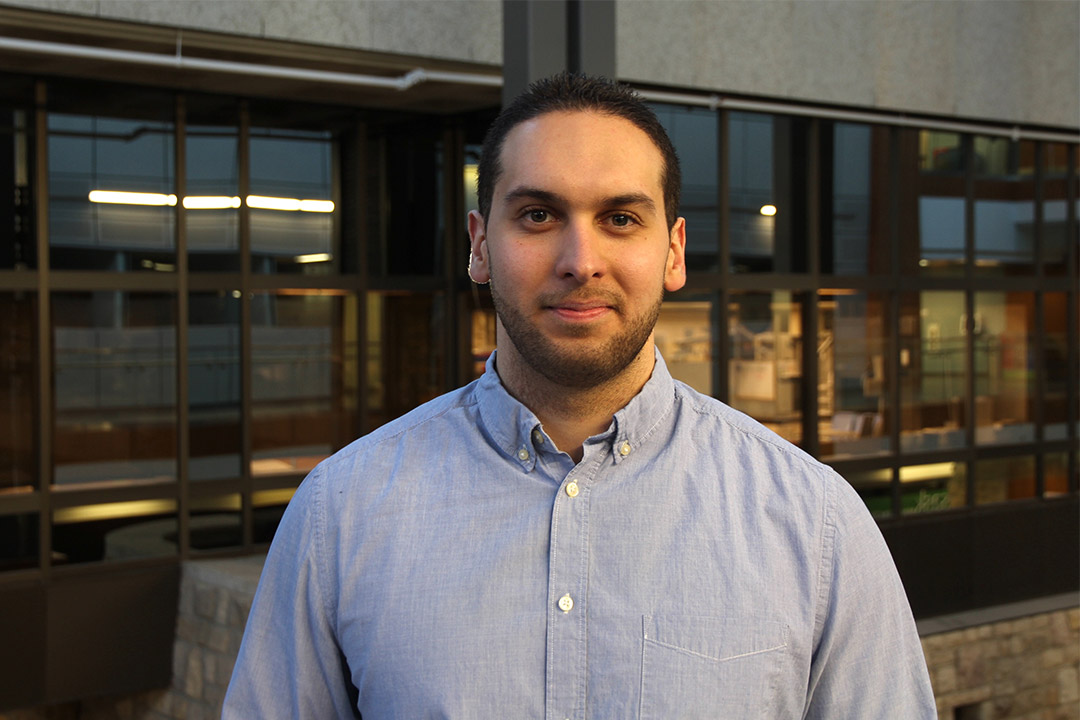
From the Middle East to medical school
Ghassan Al-Yassin knows all about changing lives. Now he is learning all about saving them, too.
By James ShewagaA decade after coming to Canada as a teenager on a student visa after his family made the lifechanging decision to leave war-torn Iraq, Al-Yassin is now an accomplished graduate student studying and teaching in the College of Medicine as he works towards an MD and a PhD at the University of Saskatchewan.
“I love it in Canada,” said Al-Yassin. “I always wonder about what I would be doing if I was still in Iraq. Back home, most of what you cared about was when the electricity was going to come back on and if you were going to get home safe, so it’s a very different life. Coming here changed my life.”
Born in Baghdad in 1990, a year before the first Gulf War, Al-Yassin was just 13 when war came to Iraq again in 2003 as American-led coalition forces invaded the country, igniting years of sectarian violence, civil war and terrorist attacks. As with most conflicts, civilians bore the brunt of the battle in Iraq, as casualties mounted and homes and lives were destroyed.
“You knew when you heard the sirens, explosions were about to happen, so go hide under the bed with your family,” Al-Yassin recalled. “There were some close calls, a few (bombs) fell in the neighbourhood. Fortunately, no family members were killed, but then I started losing friends later in the aftermath.
“Around 2006, it just got really unbearable and we had to leave the country. I remember the day, actually. There was a bad explosion in our area and my mom said, ‘I can’t live like this anymore.’ So, we packed our bags and we left for Jordan.”
While his father worked for the United Nations in Jordan, Al-Yassin enrolled at an international high school, which was visited by recruiters from universities across North America.
“My mom and I chatted with a few representatives from the universities and one of them was the U of S,” he said. “I had my eye on medicine and the special thing about the U of S was it was in a smaller city and living expenses were more reasonable for an international student, compared to other places. It had a good study environment and smaller class sizes. They listed all the advantages. So, I applied and got accepted and I ended up coming here in September, 2008.”
While getting used to the Canadian climate, culture and cuisine took a little time, Al-Yassin said he was warmly welcomed by new friends at the U of S, who were interested in learning about his Iraqi heritage and his Muslim faith.
“I was a little nervous of course, because it was completely new, but I think one of the factors that contributed to the success of my transition here was I lived on campus in residence and I met
really nice people there and they would always ask me about my language and my traditions,” said Al-Yassin. “They asked me how to say their name in Arabic and to write it in Arabic. And one of my friends actually went through a day of fasting with me just to experience it, so that was nice. People were very friendly and that helped.”
Almost a decade after arriving on campus, the 27-year-old Al-Yassin now teaches a course in immunology to undergraduate medical and dental students, while doing his doctoral research on auto-immune diseases in addition to working on completing his MD.
“I hope to find a perfect balance between practising medicine, doing research and teaching,” said Al-Yassin, who has also been active in the community, serving as co-founder of the Arab Students Association that raised $1,300 for the Saskatoon Lighthouse Assisted Living facility last year.
He is also proud to call himself Canadian now, after taking his oath of citizenship on Canada Day in 2016, and sharing his story while speaking at the citizenship ceremony on campus last year as part of the U of S Canada 150 celebrations.
“That was a great day,” said Al-Yassin, whose parents and younger brother also have their citizenship now and live in Mississauga, Ont. “It was really hard to believe, to take out my passport and look at it and say, ‘Yes, it’s mine, I am Canadian.’ I am so happy that I am here. I grew up in a different country, but I am Canadian and I feel Canadian. This is my home now.”

